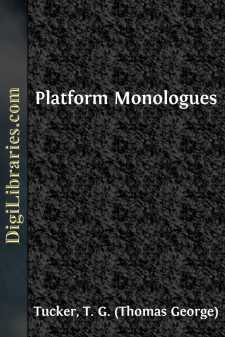Categories
- Antiques & Collectibles 13
- Architecture 36
- Art 48
- Bibles 22
- Biography & Autobiography 815
- Body, Mind & Spirit 144
- Business & Economics 28
- Children's Books 18
- Children's Fiction 14
- Computers 4
- Cooking 94
- Crafts & Hobbies 4
- Drama 346
- Education 58
- Family & Relationships 59
- Fiction 11834
- Games 19
- Gardening 17
- Health & Fitness 34
- History 1378
- House & Home 1
- Humor 147
- Juvenile Fiction 1873
- Juvenile Nonfiction 202
- Language Arts & Disciplines 89
- Law 16
- Literary Collections 686
- Literary Criticism 179
- Mathematics 13
- Medical 41
- Music 40
- Nature 179
- Non-Classifiable 1768
- Performing Arts 7
- Periodicals 1453
- Philosophy 65
- Photography 2
- Poetry 896
- Political Science 203
- Psychology 44
- Reference 154
- Religion 515
- Science 126
- Self-Help 85
- Social Science 82
- Sports & Recreation 34
- Study Aids 3
- Technology & Engineering 59
- Transportation 23
- Travel 463
- True Crime 29
Our website is made possible by displaying online advertisements to our visitors.
Please consider supporting us by disabling your ad blocker.
Platform Monologues
Categories:
Description:
Excerpt
The Supreme Literary Gift
When we have been reading some transcendent passage in one of the world's masterpieces we experience that mental sensation which Longinus declares to be the test of true sublimity, to wit, our mind "undergoes a kind of proud elation and delight, as if it had itself begotten the thing we read." We are disposed by such literature very much as we are disposed by the Sistine Madonna or before the Aphrodite of Melos. Things like these exert a sort of overmastering power upon us. Our craving for perfection, for ideal beauty, is for once wholly gratified. Our spirit glows with an intense and complete satisfaction. It would build itself a tabernacle on the spot, for it recognizes that it is good to be there. We do not analyse, we do not criticize, we simply deliver over our souls to a proud elation and delight. Nay, at the moment when we are in the midst of such spontaneous and exquisite enjoyment, we should, in all likelihood, resent any attempt to make us realize exactly why this particular creation of art so fills up our souls down to the last cranny of satisfaction while another stops short of that supreme effect.
And yet, afterwards, when we are meditating upon this strange potency of a poem or a building or a statue, or when we are trying to communicate to others the feeling of its charm, do we not find ourselves importunately asking wherein lies the secret of great art? And, in the case of literature, we think it at such times no desecration of our delight to put a passage of Shakespeare or of Milton beside a passage of Homer, of Æschylus, or of Dante, an essay of Lamb beside a chapter of Heine, a lyric of Burns by one of Shelley, and to seek for some common measure of their excellence.
Suppose that, in these more reflective moments, we can come near to some explanation; suppose we can realize what it is that these supreme writers alone achieve; then, when we read again, the very perfection of their achievement springs forward and comes home to us with a still keener delight. We feel all we felt before, but we enjoy it more, because we understand in some degree why we feel it. Say what we will, we are never really content with an admiration which cannot render to itself a reason. What are all the thousand works of literary criticism called forth by, unless it be by that perpetual question which nags for an answer in all intelligent minds, the question "What is the gift which, behind all mere diction, behind all cadence and rhythm and rhyme, behind all mere lucidity, behind all mere intellect, and behind all variety of subject matter, makes writing everlastingly fresh, admirable, a thing of beauty and a joy for ever"?
Alas! we cannot, indeed, necessarily hope to get that gift into our own power because we can perceive it in the great masters. According to the Apostle, "Every good gift and every perfect gift is from above, and cometh down from the Father of lights." "Their vigour is of the fire and their origin is celestial," says the pagan. The cœlestis origo is unpurchasable. Nevertheless, even for the ordinary being who aspires himself to write, there is this practical benefit to be derived from an insight into the truth—that he will know in what the supreme gift does consist. He will not delude himself into fancying that it means merely grammatical accuracy, or a command of words, or tricks of phrase, or a faculty for rhyming, or logical precision, or any of those other commonplace qualities and dexterities which are almost universally attainable.
He will at least aim at the right thing, and, even if he fails, his work will be all the higher for that aim.
I do not propose to speak in general of great books, but only of great literature. Literature proper is not simply writing. You may tell in writing the most important and unimpeachable truths concerning science and history, concerning nature and man, without being in the least literary....


